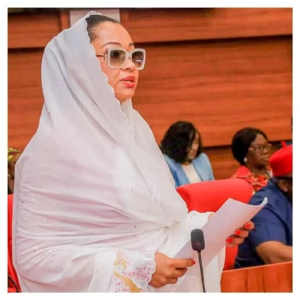Global leaders concluded the Fourth International Conference on Financing for Development (FfD4) in Seville, Spain, in July 2025 with the adoption of the “Seville Commitment,” a pledge to overhaul international financial systems, expand fiscal flexibility, and prioritize gender equality. While the agreement acknowledges the disproportionate burden of debt on African nations and women, experts warn that without enforceable measures, these promises risk becoming symbolic gestures rather than catalysts for change.
Across Africa, mounting debt has strained public services, with women disproportionately absorbing the fallout. Reduced access to education, healthcare, and economic opportunities forces many to shoulder unpaid caregiving roles, manage household crises, and compensate for shrinking social safety nets. The Seville Commitment explicitly recognizes the “feminization of poverty” and calls for valuing unpaid care work, but advocates stress that redistributing these responsibilities requires concrete fiscal reforms.
The document highlights the need for dual-track reforms: restructuring global financial institutions while empowering African governments to prioritize gender-responsive policies. National budgets, it argues, must direct resources toward women’s health, education, and entrepreneurship, alongside legal and cultural shifts to dismantle barriers to economic participation. “African women are drivers of development—they deserve recognition and resources,” the text asserts, underscoring the gap between policy rhetoric and implementation.
Critics point to systemic flaws in current debt frameworks, such as the G20’s Common Framework, which has struggled with slow, fragmented restructuring processes. Private creditors, now holding a larger share of Africa’s sovereign debt, often sidestep relief efforts, exacerbating inequality. Lessons from the 1990s-era Highly Indebted Poor Countries (HIPC) Initiative suggest success hinges on shared responsibility among lenders, borrowers, and multilateral institutions—a model increasingly challenging in today’s fragmented geopolitical climate.
Proposals for sustainable debt relief emphasize embedding accountability and transparency into restructuring agreements. Innovations like climate-linked repayment pauses or crisis-responsive clauses could offer temporary relief without deterring investors. Meanwhile, advocates urge reforms to Africa’s capital ecosystems, including blended finance models to de-risk investments in women-led businesses and financial products tailored to women’s needs, such as smaller loans and mobile banking tools.
A persistent hurdle remains the lack of gender-disaggregated financial data, which obscures the impact of reforms on women. Experts argue that equity must be central to restructuring efforts, with binding timelines and accountability mechanisms to ensure commitments translate into measurable outcomes. “If we don’t measure it—and enforce it—we can’t fix it,” the document warns, highlighting the stakes for inclusive growth.
As the conference concludes, the challenge lies in transforming pledges into action. The Seville Commitment’s legacy, observers note, will depend on whether global systems evolve to prioritize human outcomes over market metrics—and whether African women, central to economic resilience, finally gain equitable access to opportunity.







